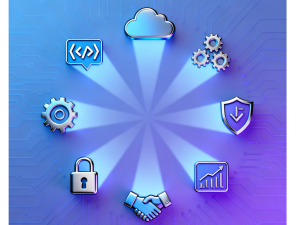From Zoom calls to assignment portals, productivity apps to virtual labs—modern learning is more digital than ever. And while online education offers flexibility and access, a silent storm is brewing: EdTech burnout.
If you’ve felt unusually tired, distracted, or even anxious after a full day of “studying” online, you’re not alone.
Welcome to the era of screen fatigue, app overload, and digital stress.
What Is EdTech Burnout?
EdTech burnout refers to the mental and emotional exhaustion caused by excessive and fragmented use of educational technology.
Think of it as your brain screaming, “Too many tabs, too little focus.”
It often looks like this:
- Feeling drained even after passive online classes
- Losing motivation to study despite good intentions
- Struggling to concentrate on screens for extended periods
- Increased anxiety or frustration during virtual assignments
The kicker? You may not even realize it’s happening.
Why Is This Happening?
Digital learning tools were designed to make education easier—but in many cases, they’re stacking up in stressful ways:
1. App Overload
Different platforms for lectures, labs, assignments, discussions, and feedback can mean juggling 5–10 tools daily. The result? Constant mental switching.
2. Lack of Boundaries
When your study space is your bedroom and your timetable is 24/7, it becomes hard to switch off. Students often feel guilty for not “doing enough.”
3. Notification Fatigue
Every ping, alert, or reminder is a mini interruption. Over time, this fragmented focus damages productivity and mental clarity.
4. Isolation Disguised as Connection
Despite chats and Zoom rooms, online learning can feel surprisingly lonely. There’s little eye contact, physical presence, or social feedback.
5. Poor Ergonomics and Eye Strain
Sitting hunched over a laptop for hours, staring at blue light—your body feels it before your brain can process it.
Real Talk: What Students Are Saying
- “I’m constantly switching apps—Canvas for assignments, Discord for group chats, Zoom for classes. It’s exhausting.”
- “Even when I’m not studying, I feel guilty. Like I should be doing something.”
- “I miss walking to class. At least that gave me a mental break.”
How to Recognize the Signs of EdTech Burnout
You might be experiencing digital burnout if you notice:
- Trouble sleeping or constant fatigue
- Dread toward starting online work
- Reduced motivation and engagement
- Increased irritability or emotional sensitivity
- Procrastination that feels heavier than usual
Coping Strategies That Actually Help
If digital tools are part of the problem, they can also be part of the solution—with balance.
Try a Digital Detox Routine:
Designate one day or evening each week to unplug completely from screens. Replace with reading, walking, or journaling.
Centralize Your Apps:
Use platforms that consolidate tasks (like Notion or Google Workspace) so you’re not jumping between tools.
Set Study Boundaries:
Treat virtual study like physical class. Log in at a fixed time, take structured breaks, and log off when done.
Use the 20-20-20 Rule:
Every 20 minutes, look at something 20 feet away for 20 seconds. Your eyes and brain will thank you.
Create Human Touchpoints:
Join study calls (even silent ones), message a classmate, or take part in forums. Social learning beats silent scrolling.
How Schools and EdTech Can Help
- Design with simplicity in mind: One platform, one login, one consistent interface
- Train students in digital wellness: Make tech-use education a part of the curriculum
- Encourage offline study: Support printing notes or handwritten submissions
- Offer mental health check-ins: Normalize burnout conversations and provide professional support
The Bottom Line
Digital classrooms aren’t going away—but neither should your wellbeing.
The key is recognizing when convenience becomes a burden. EdTech isn’t the enemy, but overuse and poor design can make learning feel like a marathon with no finish line.
Pause. Breathe. Log off.
And when you log back in—do it with intention, balance, and boundaries.
At Ascend Education, we build courseware that supports—not overwhelms. Simple interfaces, logical workflows, and career-ready IT learning you can actually enjoy.
Explore Ascend’s courseware—designed for real humans, not robots.
Because learning should lift you up, not wear you out.





